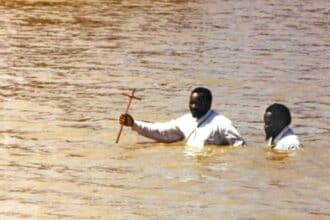I came to poetry late in my writing life. More honestly, I avoided it. Successfully. I struggle to remember whatever poetry it is I read in secondary school, but I can remember the opening line of Rebel, the book I read as a form one student without prompting: ‘Dawn came early to Pachanga’.
I do recall recitations in primary school. When family gathered, the children would be prodded into action to perform. We took turns reciting and acting out the rhymes we had learnt in school.
Suitably impressed, the aunts and uncles applauded the ‘rasteishins’ their children had crammed. ‘Fly away Peter, Fly away Paul. Come back Peter, Come back, Paul.’ ‘E ne e le Tshepo/A gama kgomo/Kgomo ya mo raga/Masi a tshologa/Godimo ga moshawa.
Perhaps my introduction to poetry is to blame. I thought I needed to speak in terms of meter, iambic pentameter, to recognize a sonnet, to memorise the different terms associated with poetry.
And then, when I did attempt to write ‘poetry’, being told that what I had written was definitely not a poem added to my angst. I would watch those who were more knowledgeable than I.
I would see people listening attentively, brows furrowed, eyes closed, nodding as if they were being transported to a place that I never seemed to reach. And then after, I would hear words such as that’s ‘really deep’, and I would know that I really was not getting it. Or I would observe the audience snapping their fingers in delight. I wondered what I was missing.
It took a great teacher to cut through my fear by saying ‘just listen and let the words move you. Feel the rhythm of the poem, find the musicality in it.’ I thought, well, I think this is doable. I started to search out poetry. I read it out loud. I began to feel it.
In his book called.’This Year You Write You Novel, Walter Moseley says: ‘Poetry is the fount of all writing the fount of all writing. Of all writing, the discipline in poetry is the most demanding.
You have to learn how to distill what you mean into the most economic and at the same time the most elegant and accurate language. In poetry you have to see language as both music and content.
A poet must be the master of simile, metaphor, and form, and of the precise use of vernacular and grammar, implication and innuendo.
The poet has to be able to create symbols that are muted and yet undeniable. The poet, above all other writers, must know how to edit out the extraneous, received, repetitious, and misleading.
A poet will ask herself, “Why did I use that word, and how will that usage affect meaning later in the poem when that same word is used again? A similar word?” The poet seeks perfection in every line and sentence; she demands flawlessness of form.’
I truly believe in poetry now. I think what makes good poetry can be applied to other forms of writing.
Instead of that ten page speech that goes on and on, think about how you could prune it, pare it down so that every word you use counts.
That memo that should be complete on one page. That short story that is not a short story. It is enough that we are told that we do not read.
Let us make people want to read. Who wants to wade through lines and lines of rhetoric when all the reader wants to know is—what’s the point?
Brevity is difficult. It is easier to ramble. This I know for a fact.
Next week I take on the challenge of reviewing a collection of poetry by a Motswana author.





